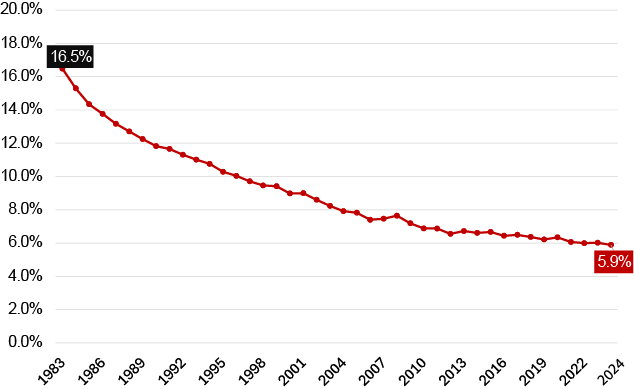Many people don’t understand what a union is, what it does, or how your work environment could change with a union. That leads to a lot of misconceptions and opportunities for outsiders to mischaracterize the facts.
The truth is that a union is a business
- Just like any other business, a union has its own employees, offices, and expenses. Like all businesses, a union’s goal is to grow and gain more share of the market for the services that it sells so that it can get make more money.
- A union’s customers are employees, like you. Unions have no other customers.
- The service that a union sells is representing collective groups of employees at work. They don’t sell any other products.
- Unions charge money to employees they represent. That’s their revenue and it comes in the form of union dues and fees. Those fees or dues are often deducted monthly straight from the employees' paychecks (after-tax).
- The more members that a union has, the more fees and dues it can collect and the more revenue that it can generate. Some of that revenue is used to represent employees in negotiations, but big part of it is used to pay union officials’ salaries, to pay for offices, and to make political contributions.

That means a union’s top priority is signing up new members so they can start paying fees and dues.
Unions Need Members & Money
Today, under 6 percent of workers like you in the private sector belong to a union. That means over 94 percent have no union representation and work directly with their employers.
If unions could do everything that they promise, wouldn’t those numbers be flipped?
Union Membership
(Private Sector)

Source: Unionstats.com, compilation of U.S. Bureau of Labor Statistics data
Unions want your money and will often do whatever it takes to get new members to sign up. This sometimes includes making misleading statements or mischaracterizing the facts.
- One of the most common ways that unions convince employees to represent them is by making whatever promises they believe will convince employees to sign up. They do this even though unions can’t guarantee that they will make good on any of their promises.
- Unions do this because they know that once they get into a workplace, it is very difficult for employees to get them out.
- Employees are supposed to understand that, unlike employers, unions can’t actually guarantee anything they promise. But many employees don’t understand this fact and then express “buyer’s remorse” after the union fails to keep its proises.
What Unions Can and Cannot Do
Unions CAN
- Collect dues, fees, fines and assessments
- Negotiate and make proposals that it asks the employer to accept
- Demand to negotiate and include a contract clause that requires you to pay money to the union to keep your job
- Represent all team members, even those who voted against the union
- Act or refuse to act on union member’s grievance
- Require union members to go on strike or face fines and union discipline
- Discipline, issue penalties, and/or fine members who violate the union’s rules
Unions CANNOT
- Guarantee a union contract
- Guarantee that an employer will agree to anything that it promised you, like:
- Higher wages
- Different or better benefits
- New work hours or schedules
- Protection from layoffs
- Staffing ratios
- Certain job standards
- Generate more money for an employer
- Hire new team members
- Fire or transfer managers
- Determine parking arrangements
- Change the technology the employer uses